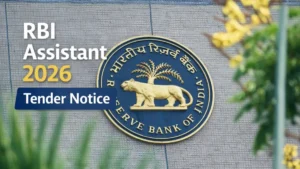Dear Readers,
Vocabulary is an important part of English that helps you deal with all kinds of questions in objective as well as descriptive papers of various exams. You can learn new words daily from our Daily Word List. Learn the words and make your own sentences on the basis of the given word list. Here are a few words from an article published in Financial News.
• Investment research
Financial News runs through(1) four of the most important changes in the EU’s revised trading rulebook, which kicks in(2) today (3rd January 2018). The European Union’s revised Markets in Financial Instruments Directive has come into force. The second iteration(3) of the giant rulebook brings sweeping changes to the way securities are traded across the region and represents the biggest change to EU financial regulation in a decade.
What is changing?
From today, fund managers operating in the EU will have to split out the cost of investment research from the fees they pay their brokers for executing trades. The costs that brokers(4) charge for arranging meetings with management of listed companies — something known as corporate access — must also be split out.
Why is it changing?
To bring more transparency to end investors — such as pension funds and their members — around what they pay their fund managers for. The rules are also aimed at doing away with so-called inducements(5) to trade; the promise of ‘free’ investment research by a broker if a fund manager chooses to trade through it, which regulators say can lead to conflicts of interest.
Who does this affect?
Fund managers will now either have to cover the cost of research themselves or charge clients through separate accounts. Almost all of the world’s big investment groups, including BlackRock, JPMorgan Asset Management and Amundi, have pledged to pay themselves, a choice that could put further pressure on profits. If fund managers become more discerning about the market insights they are willing to pay for, the producers of this research — the big investment banks — will also be hit. If less research is being consumed, this will impact banks’ revenues and could see some cut the size of their research teams.
• Dark pools
What is changing?
The EU is imposing caps on the amount of trading that can be conducted on private venues known as dark pools. The main rule stipulates that if trading in any one stock in dark pools exceeds 8% of activity across all European exchanges and trading venues over a 12-month period, then traders will be banned from trading that stock in dark pools for six months. However, so-called large-in-scale waivers will be granted to certain big trades — large orders that are not split up and sold to multiple buyers.
Why is it changing?
One of the central tenets(6) of Mifid II is transparency and in pursuit of this the EU wants to drive more trading through registered, “lit” stock markets, such as the London Stock Exchange and Germany’s Deutsche Börse. Regulators are concerned that too many small trades get conducted in the dark and that taking this flow away from exchanges harms price discovery and makes it harder to accurately gauge the buying and selling of securities in the region.
Who does this affect?
Fund managers are big fans of dark pools as they allow them to execute trades without revealing their intentions to the wider market and having it move against them. Because of this, the pools are viewed as an important source of liquidity. Algorithmic traders, such as high-frequency trading firms, also use dark pools. A study by Rosenblatt Securities last year found that 89% of shares in the FTSE 100 and FTSE 250 — representing the largest London-listed companies — are likely to exceed the caps and thus will be banned from trading in the dark. The trades will have to move elsewhere.
• The Systematic Internaliser — or ‘SI’ — Regime
What is changing?
One of the most complicated elements of Mifid II is perhaps, also, one of the most important. The construct, which existed under the first edition of the directive, is being revived under Mifid II and will compel firms that put up their own capital to fill client orders away from exchanges to register as systematic internalisers. The new regime applies to both equities and other asset classes such as bonds and exchange-traded funds. Large banks, including JPMorgan, Morgan Stanley and HSBC, and HFTs including Tower Research Capital, have all registered as SIs across a variety of asset classes and instruments.
Why is it changing?
With Mifid II, the EU is shutting down so-called broker-crossing networks — loosely regulated venues run internally within banks — and capping activity in dark pools. Regulators have grown concerned the BCNs essentially act like stock markets but in an unregulated way. Again, it is all geared towards driving more trading through stock exchanges. But as BCNs close and dark pools see less activity, SIs could benefit as those private trades look to find a new home.
Who does this affect?
SIs could emerge as a powerful competitor to public exchanges because of their ability to facilitate private trades. Alex Gerko, the founder and co-chief executive of electronic market-maker XTX Markets, warned last year that SIs could end up accounting for 30% of all equity trades in Europe. However, SIs face stiff competition from exchanges, including Cboe Global Markets, which have rolled out periodic auctions and large-in-scale offerings as an alternative to dark pools and the new breed of SIs. Banks and HFTs that become SIs must also adhere(7) to stricter reporting requirements than BCNs ever faced.
• Trade/transaction reporting
What is changing?
Under Mifid II, it will be incumbent(8) upon firms to report details of the trades they make to the market and regulators. Stricter reporting requirements are designed to improve the quality of information in the market, from equities to bonds. Trade reports are to include details such as price and size that must be published to the wider market via so-called Approved Publication Arrangements in near real time. Transaction reports provide much more detail on a trade — including the counterparties — and can be submitted later to any firm registered as an Approved Reporting Mechanism. These reports are used by regulators and not the wider market.
Why is it changing?
In a word: transparency. The EU wants a better view on which firms trade together, how often and at what size. Transaction reports can be used by national regulators to help prevent market abuse and provide a better understanding of counterparty(9) risk — especially in the bond markets. Trade reports, meanwhile, help fund managers and brokers with their ‘best execution’ responsibilities under Mifid II. These require that firms always secure the best deal for end investors, executing trades as cheaply and efficiently as possible.
Who does this affect?
The new reporting rules place a big administrative burden on fund managers, which are now responsible for making sure this data enters the market via the right channels and at the right time. Firms that do not comply(10) face financial penalties from national regulators, such as the UK’s Financial Conduct Authority. It will be possible for fund managers to outsource certain reporting functions to third-party providers and firms that have registered as systematic internalisers.
1. Run through
Phrasal verb: to explain or to read something quickly.
2. Kick in
Phrasal verb: come into effect or operation.
3. Iteration [it-uh-rey-shuh n]
Noun: the act of repeating; a repetition.
Synonyms: emphasis, monotony, repetition.
4. Broker [broh-ker]
Noun: an agent who buys or sells for a principal on a commission basis without having title to the property; a person who functions as an intermediary between two or more parties in negotiating agreements, bargains, or the like.
Synonyms: agent, dealer, entrepreneur, financier, intermediary, mediator, merchant, stockbroker, factor, go-between, intercessor, intermediate, negotiator, business person, interagent, interceder, middleperson.
Antonyms: customer.
5. Inducement [in-doos-muh nt, -dyoos-]
Noun: the act of inducing; the state of being induced; something that induces, motivates, or persuades; incentive.
Synonyms: encouragement, stimulus, attraction, bait, carrot, cause, come-on, con, consideration, desire, hook, impulse, incitement, influence, leader, lure, reward, spur, temptation.
Antonyms: discouragement, dislike, hate, repulsion.
6. Tenet [ten-it; british also tee-nit]
Noun: any opinion, principle, doctrine, dogma, etc., especially one held as true by members of a profession, group, or movement.
Synonyms: assumption, credo, creed, doctrine, dogma, faith, precept, presumption, teaching, canon, conception, conviction, impression, maxim, opinion, persuasion, position, profession, rule, system, thesis.
Antonyms: disbelief, doubt, reality, skepticism.
7. Adhere [ad-heer]
Verb: to stay attached; stick fast; cleave; cling (usually followed by to); to be united by a molecular force acting in the area of contact; to be devoted in support or allegiance; be attached as a follower or upholder (usually followed by to).
Synonyms: comply, heed, obey, observe, stand by, follow, fulfill, keep, maintain, mind, practice, respect, support, abide by, be attached, be constant, be devoted, be devoted to, be faithful, be loyal, be true, cleave to.
Antonyms: disobey, ignore, overlook, condemn.
8. Incumbent [in-kuhm-buh nt]
Adjective: holding an indicated position, role, office, etc., currently; obligatory (often followed by on or upon).
Noun: the holder of an office; a person who holds an ecclesiastical benefice.
Synonyms: binding, necessary, compelling, urgent.
Antonyms: unnecessary.
9. Counterparty [koun-ter-pahr-tee]
Noun: the other person or institution entering into a financial contract or transaction.
10. Comply [kuh m-plahy]
Verb: to act or be in accordance with wishes, requests, demands, requirements, conditions, etc.; agree (sometimes followed by with).
Synonyms: acquiesce, adhere to, give in, give up, obey, observe, quit, satisfy, submit, accede, accord, defer, discharge, ditto, fold, fulfill, keep, mind, perform, respect, yield, agree to.
Antonyms: disobey, dissuade, condemn, deny.





 RBI Assistant 2026 Tender Out, Notificat...
RBI Assistant 2026 Tender Out, Notificat...
 Union Bank of India Promotion Exam Notif...
Union Bank of India Promotion Exam Notif...
 Daily Current Affairs and GK Updates (04...
Daily Current Affairs and GK Updates (04...









